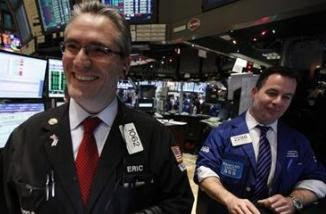 |
| Nokia 801T |
Designed exclusively for China's TD-SCDMA 3G network, Nokia has announced a new Symbian-powered smartphone, the 801T, described as 'a special design for business-focussed elite high-end users'. It's notable for being the 'industry's first stainless steel unibody smartphone' and has a 4" CBD display, NFC, an 8 megapixel EDoF camera with dual-LED flash, 720p HD video recording and built-in CMMB mobile TV (with antenna). More below.
The Nokia 801T is a continuation of Nokia exquisite craftsmanship, and is simple yet elegant... Its 4-inch large CBD touch screen is perfect to display messages, information and photo content; there's a built-in telescopic TV antenna, so that business people can experience anytime, anywhere mobile TV (CMMB) to bring an audio-visual feast.
Nokia 801T largely fills the gaps in the field of high-end TD (3G) products... It features a Nokia TD-SCDMA smart terminal using NFC technology in the first of its kind. For business users, NFC functionality makes work and life more efficient and convenient.
Built-in CMMB mobile TV, capable of receiving TV signals with clear, smooth playback quality, can sync TV shows, and does not generate data traffic during playback, so that business people can spend their leisure time watching their favourite TV programs.
Overall form factor and specs are roughly similar to those of the X7, though with a LCD screen rather than OLED:
Specifications
Developer Platform: Symbian Anna
Screen Resolution: 360 x 640 pixels
Screen Color Depth: 24 bits
Screen Size: 4 inches
Display Technology: ClearBlack, LCD transmissive
Device Size: 125.2 x 65 x 12.75 mm
Volume: 83.2 cc
Weight: 170 g
Frequency Bands: GSM 1800, GSM 1900, GSM 850, GSM 900, TD-SCDMA 1880-1920, TD-SCDMA 2010-2025
CPU Count: Single CPU
CPU Type: ARM 11
CPU Clock Rate: 680 MHz
Graphics Processor: 2D/3D Graphics HW Accelerator, BCM2727 chip, GPU @ 200 MHz with 32 MB, with OpenVG1.1 and OpenGL ES 2.0 support
CMOS Sensor: 8.0 Megapixels
Camera Digital Zoom: 2 x
Camera Focal length: 33 mm
Camera F-Stop/Aperture: f/2.8
Camera Focus range: 50 cm to infinity
Video Recording Resolution: 1280 x 720 pixels
Video Digital Zoom: 3 x
Video Recording Formats: H.263, H.264/AVC, MPEG-4
Video Playback Formats: 3GPP formats (H.263), Flash Video, H.264/AVC, MPEG-4, RealVideo 8,9,10, Sorenson Spark, VC-1, VP6, WMV 9
Audio Features: Audio Equalizer, Audio Recording AAC, Audio Streaming, Bluetooth Stereo, Handsfree Speaker, Loudness, Music Player, Stereo Audio Recording, Stereo FM RDS Radio, Stereo Widening
Maximum User Storage: 230 MB
Mass Storage Memory: 8 GB
ROM Memory: 1 GB
RAM Memory: 256 MB
Graphics Memory: 32 MB
Memory Card type: Micro SD
Local Connectivity: Bluetooth 3.0, Bluetooth Stereo Audio, Micro USB, MTP (Multimedia Transfer Protocol), NFC, Nokia Adapter Cable for USB OTG CA-157Connector, Nokia AV 3.5mm, USB 2.0 High-Speed, USB Mass Storage, USB OTG 1.3
Bluetooth Profiles: A2DP, AVRCP 1.0, BIP, DUN, FTP, GAP, GAVDP, GOEP, HFP, HSP, OPP, PBAP 1.0, SDP, SPP 1.0
Email Solutions: Mail for Exchange, Nokia Messaging, OMA E-mail Notification v1.0
Power Management: 2.0mm Charger Connector, USB Charging
Battery model: BP-3L 3.7V 1300 mAh
GSM Talk Time up to: 5.7 hours
TD-SCDMA Talk Time up to: 8.0 hours
The Nokia 801T is a continuation of Nokia exquisite craftsmanship, and is simple yet elegant... Its 4-inch large CBD touch screen is perfect to display messages, information and photo content; there's a built-in telescopic TV antenna, so that business people can experience anytime, anywhere mobile TV (CMMB) to bring an audio-visual feast.
Nokia 801T largely fills the gaps in the field of high-end TD (3G) products... It features a Nokia TD-SCDMA smart terminal using NFC technology in the first of its kind. For business users, NFC functionality makes work and life more efficient and convenient.
Built-in CMMB mobile TV, capable of receiving TV signals with clear, smooth playback quality, can sync TV shows, and does not generate data traffic during playback, so that business people can spend their leisure time watching their favourite TV programs.
Overall form factor and specs are roughly similar to those of the X7, though with a LCD screen rather than OLED:
Specifications
Developer Platform: Symbian Anna
Screen Resolution: 360 x 640 pixels
Screen Color Depth: 24 bits
Screen Size: 4 inches
Display Technology: ClearBlack, LCD transmissive
Device Size: 125.2 x 65 x 12.75 mm
Volume: 83.2 cc
Weight: 170 g
Frequency Bands: GSM 1800, GSM 1900, GSM 850, GSM 900, TD-SCDMA 1880-1920, TD-SCDMA 2010-2025
CPU Count: Single CPU
CPU Type: ARM 11
CPU Clock Rate: 680 MHz
Graphics Processor: 2D/3D Graphics HW Accelerator, BCM2727 chip, GPU @ 200 MHz with 32 MB, with OpenVG1.1 and OpenGL ES 2.0 support
CMOS Sensor: 8.0 Megapixels
Camera Digital Zoom: 2 x
Camera Focal length: 33 mm
Camera F-Stop/Aperture: f/2.8
Camera Focus range: 50 cm to infinity
Video Recording Resolution: 1280 x 720 pixels
Video Digital Zoom: 3 x
Video Recording Formats: H.263, H.264/AVC, MPEG-4
Video Playback Formats: 3GPP formats (H.263), Flash Video, H.264/AVC, MPEG-4, RealVideo 8,9,10, Sorenson Spark, VC-1, VP6, WMV 9
Audio Features: Audio Equalizer, Audio Recording AAC, Audio Streaming, Bluetooth Stereo, Handsfree Speaker, Loudness, Music Player, Stereo Audio Recording, Stereo FM RDS Radio, Stereo Widening
Maximum User Storage: 230 MB
Mass Storage Memory: 8 GB
ROM Memory: 1 GB
RAM Memory: 256 MB
Graphics Memory: 32 MB
Memory Card type: Micro SD
Local Connectivity: Bluetooth 3.0, Bluetooth Stereo Audio, Micro USB, MTP (Multimedia Transfer Protocol), NFC, Nokia Adapter Cable for USB OTG CA-157Connector, Nokia AV 3.5mm, USB 2.0 High-Speed, USB Mass Storage, USB OTG 1.3
Bluetooth Profiles: A2DP, AVRCP 1.0, BIP, DUN, FTP, GAP, GAVDP, GOEP, HFP, HSP, OPP, PBAP 1.0, SDP, SPP 1.0
Email Solutions: Mail for Exchange, Nokia Messaging, OMA E-mail Notification v1.0
Power Management: 2.0mm Charger Connector, USB Charging
Battery model: BP-3L 3.7V 1300 mAh
GSM Talk Time up to: 5.7 hours
TD-SCDMA Talk Time up to: 8.0 hours
News by Allaboutsymbian
Read current news at http://bbc-cnn-worldnews.blogspot.com































